- Home
- Hilary Mantel
The Assassination of Margaret Thatcher Page 6
The Assassination of Margaret Thatcher Read online
Page 6
She dropped her head, gnawed her lip, turned her big pale face away. She annoyed me, at times; it was as if she didn’t understand the English language, the disclaimers and the catchphrases we all have to take on, all of us, wherever we come from. “Anyway,” I said, “you’ve missed all the excitement, Mrs. Bathurst. A week ago we had a break-in.” I’d turned up one morning, and there was Mrs. Ranatunga and Dennis. Mrs. Ranatunga was in tears, wringing her J Cloth between her hands. There was a police car outside.
“Could you credit it?” Mrs. Bathurst said. She looked more animated. “Drugs?”
“Yes, that’s what Shinbone said. They must have thought we kept stuff on the premises. They ransacked the basement, there was glass all over the place. They practically ripped the fridge door off. They took Bettina’s samples, what would they have wanted with them? What would they do with tubes of blood?”
“Can’t imagine.” Mrs. Bathurst shook her head, as if the human condition was beyond her. “I’ll go down and commiserate with Bettina,” she whispered. “Poor little girl. What a shock.”
* * *
ONE SATURDAY, AFTER a long morning at Harley Street, I thought I’d stay in town and go shopping. By two o’clock I was worn out from the heat and the crush. I got on a tour bus, pretended to be a Finnish monoglot, and rested my legs on the empty seat next to me. There was thunder in the air, a clammy heat. Tourists sat dazed on the traffic islands and in the parks. The trees seemed wetly green, foliage hanging in great clumped masses, slow-rustling and heavy. Near Buckingham Palace there was a bed of geraniums—so scarlet, as if the earth had bled through the pavements; I saw the Guardsmen wilting in sympathy, fainting at their posts.
That night it was too hot to sleep. The night following I dreamed that I was in Harley Street. In my dream it was Monday; this is what people usually dream, who work all week. I was coming, or going: the pavement was stained—sunrise or sunset—and I saw that all the Harley Street railings had been filed to points. I had a companion in the street, matching me step for step. I said, look what they’ve done to the railings. Yes, very nasty points, she said. Then a big hand came out, and pushed me against them.
Next day I was groggy, missed my usual train and arrived at Waterloo twelve minutes late. Twelve minutes—what is it, against the length of a life? It’s the start of a foul day, that’s what it is—because then comes the scrimmage on the Bakerloo line, and Regent’s Park station with the lifts broken down. When I made it to the top I’d got to sprint—otherwise Smear and Shinbone would have their heads through my hatch, tapping their watch faces: Oh, where is Todd? I turned into Harley Street. And what did I see? Only Liz Bathurst heel-toeing it along. I caught up, put my hand on her arm: Late, Mrs. Bathurst! This isn’t like you! No sleep, she said, no rest. You too? I said. My dream was washed away; easily, I melted into sympathy. She nodded. Up all night, she said.
But in the next three, four, five seconds, I began to feel vastly irritated. I can’t put it better than that. God knows, Bettina wears me down, so amiable and dumb, and so do the doctors, but in that moment I realized that Mrs. Bathurst was wearing me down even more. “Liz,” (and I snapped at her, I admit it) “why do you go around the way you do? That cape—dump it, can’t you? Burn it, bury it, send it to a car-boot sale. You bloody depress me, woman. Get your hair done. Buy some emery boards, file your nails.”
My nails, she said, my hair? She turned to me, face sallow and innocent as the moon. And then without warning—and I realize I must have offended her—drew her arm back, and thumped her fist between my breasts. I careered backward, right into the railings. I felt them dent into my flesh, one bar against my spine and one behind each shoulder blade. Mrs. Bathurst flew off down the street.
I put my hands behind me, wrapping my fingers for a moment around those evil flaking spikes; levered myself away, and staggered after her. If I’d had any faith in our doctors, I might have asked one of them to look at my bruises. But as it was, I just felt shaken up. And sorry, because I’d been brutal—my fatigue was to blame.
All that day I felt raw. The noises of our house seemed amplified. When the doctors scuffed in and out, I could hear their Lobbs scraping the carpets. I could hear Gland’s wheezing and puffing; the snarls of her patients, and the sobs of the patients of Smear, as he pushed in with his cold speculum, while Mrs. Bathurst stood by. I heard the whine and grind of Snapper’s drill, and the chink of steel instruments against steel dishes.
I said to Bettina, is it Monday all day? Yes, she said; she was so stupid she thought it was a normal question. Ah, I said, then Dr. Lobotomy will be in, 2:30–8:30, first floor second door on the left. I think I’ll get a brain operation, or a major tranquilizer or something. I was really nasty to Mrs. Bathurst today. I laughed at her for wearing that cape.
Bettina turned her strawberry mouth down, just at the corners. Her big eyes—unripe fruits—were bulgy with incomprehension. “I know it’s old-fashioned,” she said, “but I don’t see that it’s funny.”
Should I have noticed at this point, that they’d got together, left me in the cold? I lacked insight this summer—that’s how Lobotomy would put it. Yet when the patients come in I seem to see straight through them to the bone. I can hear their hearts flutter, hear their respiration, their digestion, estimate their tick-over speed and say whether they’ll be with us for Christmas. It’s September now, and I still feel wrecked by London—I am hot, filthy, desperate when I get back to Staines for a bath or shower. For comfort I retain this picture in my mind: one day I’ll get further out of town. Somewhere just big enough for me. Somewhere small and quiet.
Next day I bought a bunch of lilies as I came through Waterloo. I pressed them into Mrs. Bathurst’s hands. “Sorry,” I said. “About the cruel remarks I made.” She nodded, absently. She left them on the table in the hall, didn’t put them in water; I could hardly do it myself, could I? That evening she and Bettina left together. On her way out she just casually scooped them up, without looking at them. I’ll never know if they went home with her or went into a bin.
Next day, Bettina came up from the basement. She stood inside my door, leaning on the frame. She looked faintly bruised and blurred, as if her outline had become fuzzy. “I’d like to talk to you,” she said.
“Of course,” I said, rather coldly. “Are you in some sort of trouble?”
“Not here,” she said, looking around.
“Meet me at one-fifteen,” I said. I told her how to find the French place. They’re even cheaper at lunchtime.
I was there first. I drank some water. I didn’t think she’d come, thought she’d lose the address, lose interest; her problems were easily soluble, after all. One-thirty, she came flouncing in—cheeks pink with self-importance, coloring when the waiter took her cheap little rain-proof jacket. They brought the menu; she took it without seeing it; she pushed her curly fringe from her forehead and—as I could have forecast—burst into tears. It’s been a long, difficult summer. It came to me what Mrs. Bathurst said, about the need to move on: I said, “I suppose you’ll not be with us much longer, Bets?”
She locked her eyes onto mine; this surprised me, to see those great blue-violet orbs assume a purpose. “You don’t realize, do you?” she said. “My God, when were you born? Don’t you realize I’m seeing Bathurst, most nights now?”
Seeing, indeed. I kept a very judicious silence: that’s what you should do, if you don’t quite know what people mean. Then she did something odd: her elbows on the table, she put her fingers to the back of her neck, and seemed to massage the scalp line there, and raise her roseate hair. It was as if she were trying to show me something. A moment, when her eyes challenged mine, and then her hair fell back against her short white neck. She shivered; she drew one hand across her shoulder, slowly, and allowed it to graze her breast, brush her nipple. One of the old waiters passed and scowled at me, as if he were seeing something he didn’t like.
“Oh, come on Bets, don’t cry.” I extended my hand, let it
cover hers for a moment. Okay, so you’re that way; I should have known, shouldn’t I, when you came into my cave to giggle about sexual perversity? “Lots of people are like it, Bettina.”
“Oh, Jesus,” she said. All her sweetness had gone; she was foulmouthed, sweating, pallid. “It’s like an addiction,” she said.
“There are support groups. You can ring up and get advice, about how to come out. I wouldn’t have thought it was a problem these days, especially in London. It must be easy enough to find people with the same … orientation.”
Bettina was shaking her head, her eyes on the check tablecloth. Perhaps it was her family at home she was thinking of; different mores in Melbourne? “Think of it like this—maybe it’s just a phase you’re going through.”
“Phase?” She lifted her head. “That’s all you know, Todd. I’m like this forever, now.”
Setting aside my prejudices—which is not easy, and why should it be?—I have to say I have no high opinion of Mrs. Bathurst, though as a work colleague she’s a lot brighter recently. Now she’s hooked up with Bettina, she’s energized, brisk. Her eyes are bright and she keeps looking at me. Wants to make amends, I suppose, for attacking me in the street. She’s asked me to visit her next weekend. I don’t know if I’ll go or not. Come for a bite, was how she put it.
OFFENSES AGAINST THE PERSON
Her name was Nicolette Bland, and she was my father’s mistress. I’m going back to the early seventies. It’s a long time now since he was subject to urges of the flesh. She looked like a Nicolette: dainty, poised, hair short and artfully curling; dark, liquid, slightly slanting eyes. She was honey-colored, as if she’d had a package holiday, and she looked rested, and seldom not-smiling. I put her at twenty-six. I was seventeen, and filling in the summer before university as a junior clerk in my father’s chambers. Deviling, he called it. I never knew why.
I used to watch her type, clip-clip: little darting movements of her pearlescent nails. “They say, Wimmin, never learn to type!” I offered.
They were just beginning to say it, round 1972. “Yes, do they?” she said, a hand hovering for a moment. “Don’t start, Vicky. I’ve a lot to get through by dinnertime.” She made a little swatting movement, and got right back to it, clippety-clip, clop-clip.
I was fascinated by her feet. I kept hanging my head upside down and peering at them, side by side under the desk. Spike heels had gone out of style, but she stuck by them. Hers were black and very highly polished. Once, when my father came out of his office, she said without looking up—clip-clop, clickety-clop—“Frank, do you think we could get a modesty panel affixed to this desk?”
By the time I came back, at Christmas, I got her desk because she had gone to work at Kaplan’s, across Albert Square. “Something of a supervisory element to it,” my father said. “Also broader scope of work—her experience here, you see, being mostly confined as we are to conveyancing—”
“Road traffic offenses,” I said. “Offenses against the person.”
“Yes, that sort of lark. Plus I understand young Simon offered her the extra hundred a year.”
“Probably Luncheon Vouchers,” I said.
“I shouldn’t wonder.”
“Occam’s Razor shaves you closer,” I said. I had only begun to suspect something when he began multiplying explanations. My foot shot out—this happens, when I see the truth suddenly—and hit the modesty panel with a dull thud.
It was all a novelty to me. I knew men had dealings with their secretaries. I imagined there were subspecies of adultery going on, up and down John Dalton Street, Cross Street, Corn Exchange, but we never did matrimonial, or if we did the clerks locked the files away from me, so my most recent take on male duplicity came from the novels of Thomas Hardy. The 1960s were behind us, the era of free love, but it had not dawned in Wilmslow, from where we commuted on weekdays on the crowded 7:45. I guessed why Nicolette had moved across the Square. It was more discreet for a senior partner to keep an affair extramural. The Kaplans must be in on it. Repaying a favor, like the time they sent over a spare stapler when ours came apart in my hand.
Our lives till then had been spotless. We lived in an entirely dust-free house, with a mother occupied full-time in whisking it. My sister had gone to teacher training college. I was of a nature obsessively tidy. As for my father, he was not a man to cause work. Sometimes during that summer he would send me home by myself, saying he must catch up on paperwork—as if there were some other kind of work, like sawing logs, to which a senior partner was bound. He would send with me a message that he would make do with a sandwich when he came in. The brown dinner that my mother was keeping hot for him would shrivel to a stain in its ovenproof serving dish. Solitary in the murk, she would go out into the garden and tie drooping stems to canes, her feet sunk in the earth she had watered earlier. If the telephone rang, “Just coming,” she would trill from the gloaming: “See if it’s your father.” I would hear her knocking the clods off by the back door.
He was on the rota as duty solicitor, and there were nights when he was kept very late at a police station. My mother, who was of a pale nature, would sometimes look paler as the hands of the clock crept round to eleven. “Shouldn’t have to do it,” she would snap. “Too senior. Let Peter Metcalfe do it. Let Whatsi Willis do it, he can’t be thirty.”
When he came in my mother smelled alcohol on his breath. “Surely not risking your license?” She looked brittle.
“It’s the atmosphere there at Minshull Street,” he said. “It’s highly intoxicating.”
“You know that girl, Nicolette?” I said. “Is she foreign?”
“Bland,” he said: this to my mother. “Nicolette Bland. She used to, whatsit. Typing. Now don’t start, Victoria.”
“Oh yes,” my mother said. “Young Kaplan offered her a pension scheme.”
“That’s the one. What’s this about, all of a sudden? Why would she be foreign?”
“Her nice caramel color. Her little round arms and legs, you know the ones, they look as if they’ve been molded. As if she was made in Hong Kong.”
“I had no idea I was entertaining an Enoch Powellite,” he said huffily.
“For crying out loud,” I said, “I’d like to know if it’s bottled tan, if so where would I get it, I want to be more attractive to the opposite sex and I have to start somewhere.”
“You look like a convict with that haircut.”
“It wouldn’t be my choice,” my mother said. “I mean the tan, the haircut goes without saying. Take a look at her palms when next you see her. If it’s fake they’ll be cocoa-colored in the cracks. Beauty queens have that dilemma. So Valerie says.”
Valerie was her hairstylist. She was a formidable permist and neighborhood capo, the Cesare Borgia of the tail comb. My mother had been trying to bring us together. I didn’t like the turn the conversation had taken. As if it were me who stood to be questioned. “I’m going to bed.”
“I hope you won’t have one of your dreams, pet.”
“Kissy-kissy,” said my father, offering, under the kitchen strip light, his bristling cheek.
* * *
AFTER CHRISTMAS, I stayed on in the office while plans were made for my future. Something had gone amiss at university. Though no actual bloodshed. We won’t go into it here.
Early in the new year we were in court with an assault that was exciting by our standards. The landlord of a pub in Ancoats was accused of battering one of his customers. The prosecution was ready to say their man had been drinking peaceably at the bar when he felt a call of nature whereupon the landlord willfully misdirected him into the backyard, followed him out and booted him around, unprovoked, among the barrels, finally opening a gate and precipitating him into a drear and filthy ginnel. There stood none other than a uniformed constable, straight and true, who witnessing the gash on his head hastened to take his statement in his ready notebook, in which, by the light of a streetlamp that had just wandered into the ginnel, he wrote an immediate and ci
rcumstantial account.
The landlord had brought half his regulars along as witnesses to the mildness of his character. A more cutthroat crew you never saw. There was a great deal that was peculiar about the police account of the night but the landlord, an energetic young Irishman, wasn’t helping his case by causing a disturbance in the corridor outside the courtroom, shouting and hallooing and offering to buy a drink for everyone in sight. “Win or lose, sir,” he shouted at Bernard Bell, who was prosecuting, “stroll in at any time and name your pleasure.”
I had to duck myself, to avoid one of his glad hands. I looked up, steadying myself to follow my papa into court, and to my surprise saw Nicolette appear and then hover at the other end of the corridor. She was frowning, looking about, but when she spotted me she put on a dead-eyed simper. She had some papers in her hand, and she fluttered them, as if suggesting she was on Kaplan business, but somehow I knew she had come to look for my father, I think it was the way her eyes kept roaming, roaming around. “Double gin for you, princess,” the landlord proposed, reeling past her on a policeman’s arm. The policeman’s face said, now do you see why we opposed bail?
When the landlord, who was a likable sort after all, gave his version of the evening, there was some sniggering from the clerks around me, and roars of laughter from the public gallery. Potts, who was sitting and was known for having every element of humor left out of him, threatened to clear the court, so there was soon a hush. But I can’t give an account of the case as, just as the police officer took the stand, I felt a kick in my stomach, something like a cloven hoof, and I had to fold myself double to scrabble in the bag at my feet, edge past my father, nod to Potts and back reverently out of the court in the direction of the lavatories. My father, who was now attuned to the biology of young women, gave me a sympathetic glance as I went. I turned at the door, glanced up, and saw that Nicolette was perched in the gallery, squeezed on either side by the landlord’s friends, who bounced silently in their seats at every sally in the court below.

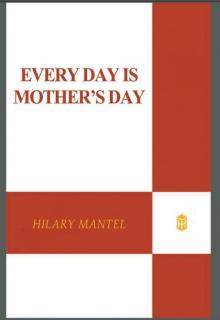 Every Day Is Mother's Day
Every Day Is Mother's Day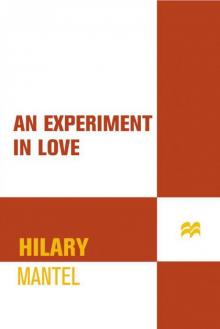 An Experiment in Love
An Experiment in Love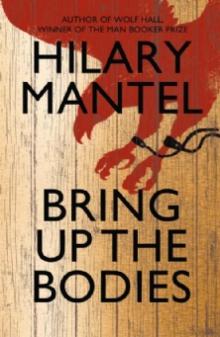 Wolf Hall
Wolf Hall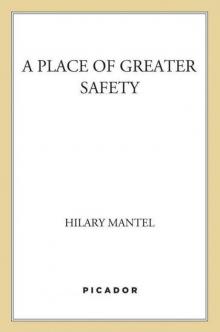 A Place of Greater Safety
A Place of Greater Safety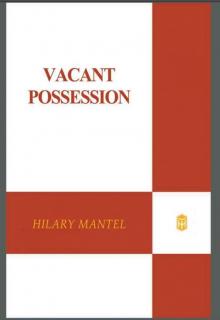 Vacant Possession
Vacant Possession The Giant, O'Brien
The Giant, O'Brien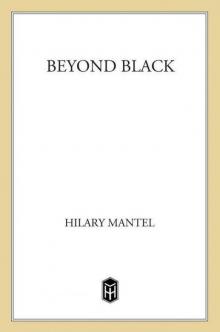 Beyond Black
Beyond Black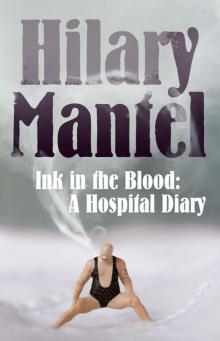 Ink in the Blood: A Hospital Diary
Ink in the Blood: A Hospital Diary The School of English
The School of English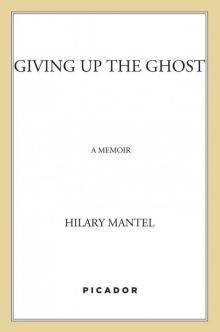 Giving Up the Ghost
Giving Up the Ghost The Mirror and the Light: 2020’s highly anticipated conclusion to the best selling, award winning Wolf Hall series (The Wolf Hall Trilogy, Book 3)
The Mirror and the Light: 2020’s highly anticipated conclusion to the best selling, award winning Wolf Hall series (The Wolf Hall Trilogy, Book 3)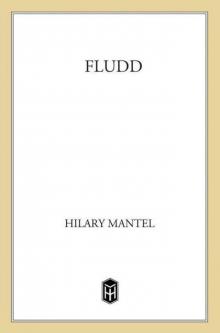 Fludd
Fludd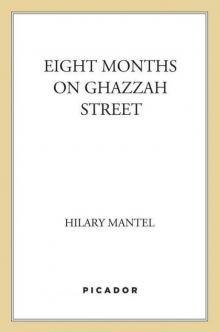 Eight Months on Ghazzah Street
Eight Months on Ghazzah Street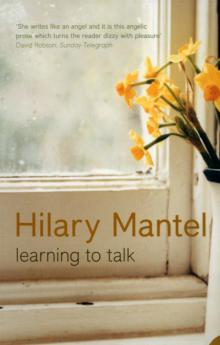 Learning to Talk
Learning to Talk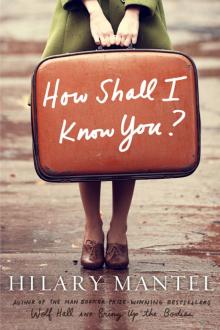 How Shall I Know You?: A Short Story
How Shall I Know You?: A Short Story A Change of Climate
A Change of Climate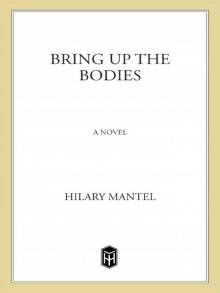 Bring Up the Bodies
Bring Up the Bodies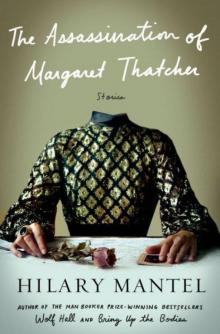 The Assassination of Margaret Thatcher: Stories
The Assassination of Margaret Thatcher: Stories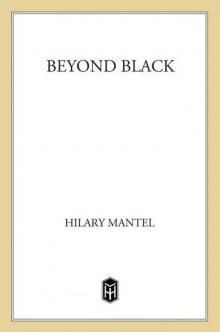 Beyond Black: A Novel
Beyond Black: A Novel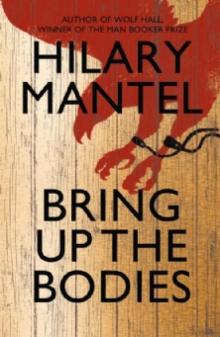 Wolf Hall: Bring Up the Bodies
Wolf Hall: Bring Up the Bodies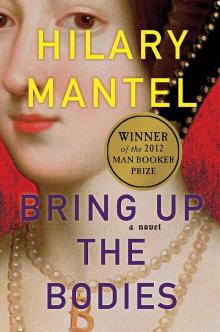 Bring Up the Bodies tct-2
Bring Up the Bodies tct-2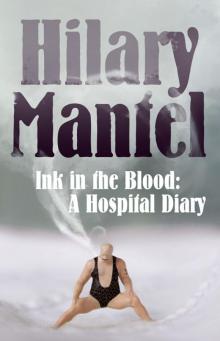 Ink in the Blood
Ink in the Blood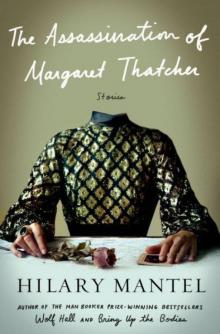 The Assassination of Margaret Thatcher
The Assassination of Margaret Thatcher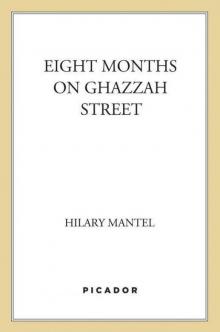 Eight Months on Ghazzah Street: A Novel
Eight Months on Ghazzah Street: A Novel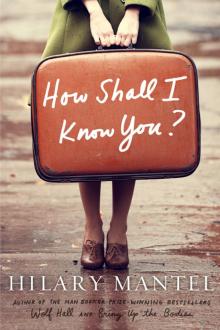 How Shall I Know You?
How Shall I Know You? A Change of Climate: A Novel
A Change of Climate: A Novel The Giant, O'Brien: A Novel
The Giant, O'Brien: A Novel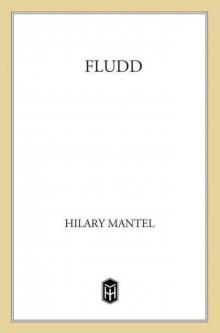 Fludd: A Novel
Fludd: A Novel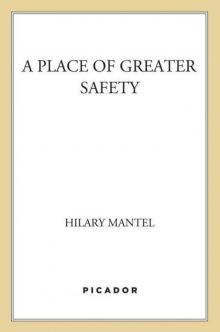 A Place of Greater Safety: A Novel
A Place of Greater Safety: A Novel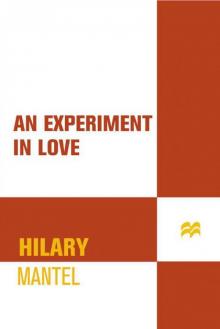 An Experiment in Love: A Novel
An Experiment in Love: A Novel